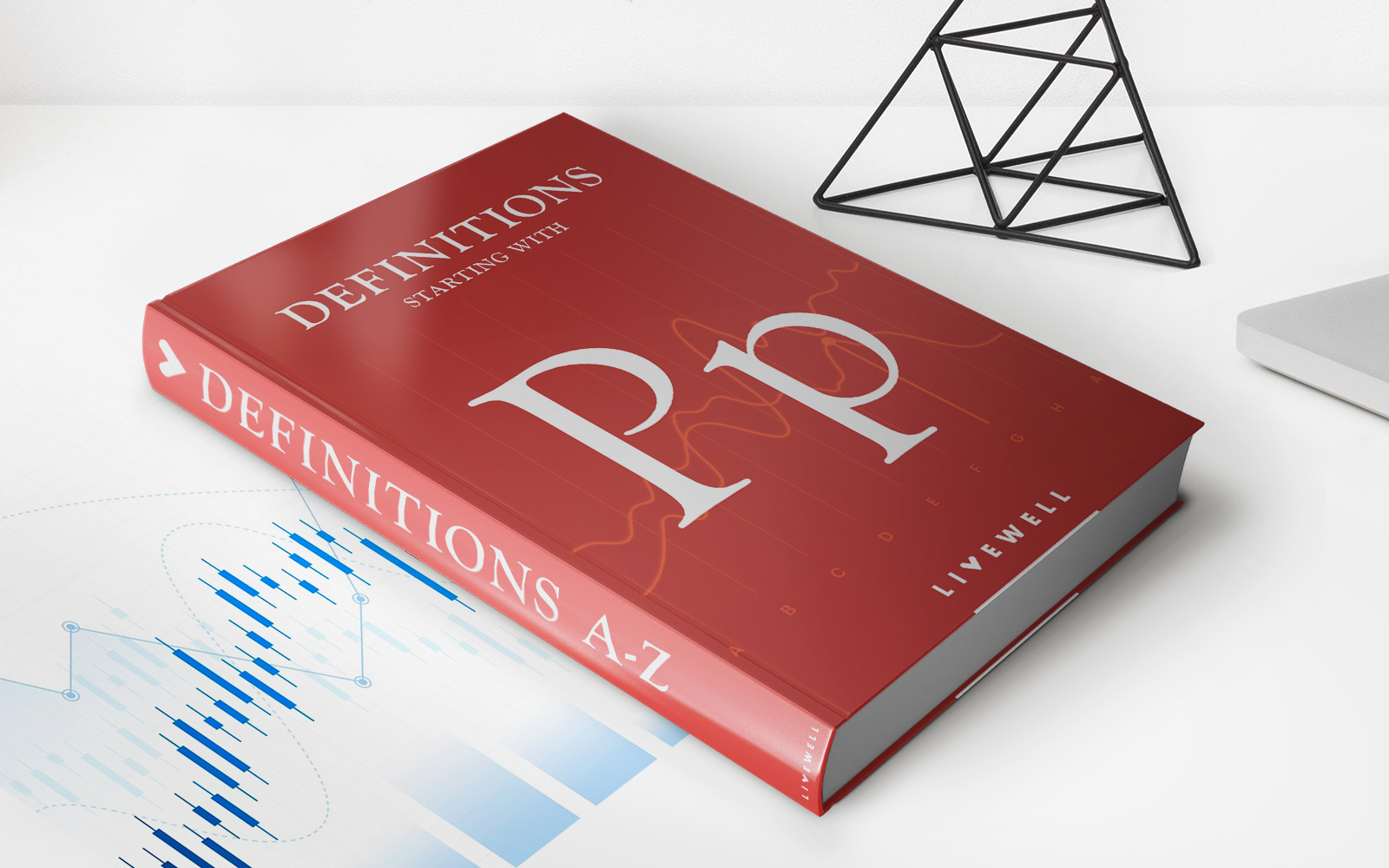Home>Finance>What Are The Equivalent Of Certificates Of Deposit In The UK?


Finance
What Are The Equivalent Of Certificates Of Deposit In The UK?
Modified: December 29, 2023
Discover the equivalent of certificates of deposit in the UK and explore finance options to grow your savings.
(Many of the links in this article redirect to a specific reviewed product. Your purchase of these products through affiliate links helps to generate commission for LiveWell, at no extra cost. Learn more)
Table of Contents
Introduction
Certificates of Deposit (CDs) are popular financial instruments in the United States that offer individuals a secure way to save and grow their money. However, if you are a resident of the UK or searching for similar investment options abroad, you may wonder what the equivalent of Certificates of Deposit in the UK is.
In the UK, the financial landscape differs slightly from the US, and as a result, there are various products that offer similar features and benefits to Certificates of Deposit. These alternatives can help you earn a return on your savings while providing a level of security for your investment.
In this article, we will explore the different types of financial products available in the UK that can be considered the equivalent of Certificates of Deposit. From fixed-term savings accounts to government-issued bonds, we will uncover the key features, benefits, and considerations of each option. Whether you are a UK resident or an international investor looking to diversify your portfolio, this guide will shed light on viable alternatives to Certificates of Deposit in the UK.
Now let’s dive into the various options available and examine their suitability for your financial goals and investment preferences.
Types of Certificates of Deposit (CDs)
Certificates of Deposit in the United States come in different forms, each with its own unique features and terms. Understanding these variations is crucial to selecting the right type of CD that aligns with your financial goals and investment needs.
1. Traditional CDs: Traditional CDs have a fixed maturity date and interest rate. They typically have terms ranging from a few months to several years, and the interest rate remains constant throughout the duration of the CD. These CDs are suitable for individuals who want a predictable return on their investment and are willing to leave their money untouched for a specific period.
2. Callable CDs: Callable CDs provide the issuer with the option to recall or terminate the CD before its maturity date. This option benefits the issuer by allowing them to reissue the CD at a lower interest rate if prevailing market rates decline. However, callable CDs can be riskier for investors as their investment may be prematurely terminated.
3. Jumbo CDs: Jumbo CDs are high-value certificates of deposit, typically with a minimum deposit requirement of $100,000 or more. These CDs offer higher interest rates than traditional CDs, making them attractive to individuals with significant savings.
4. Variable-rate CDs: Unlike traditional CDs, variable-rate CDs have an interest rate that can fluctuate over the course of the investment term. The interest rate is often tied to a benchmark, such as the prime rate or Treasury bill rates. Variable-rate CDs can be a suitable option for individuals who believe that interest rates will rise in the future.
5. Liquid CDs: Liquid CDs, also known as no-penalty CDs, allow investors to withdraw their funds before the maturity date without incurring a penalty. These CDs offer more flexibility compared to traditional CDs, but they usually come with a slightly lower interest rate.
Regardless of the type of CD you choose, it is important to carefully review the terms and conditions, including the interest rate, maturity date, early withdrawal penalties, and any additional fees or features offered by the financial institution.
Equivalent Products in the UK
The UK offers a range of financial products that serve as alternatives to Certificates of Deposit. These products provide individuals with opportunities to save and grow their money while offering varying levels of security and potential returns. Let’s explore some of these equivalent options:
- Fixed-term Savings Accounts: Similar to traditional CDs, fixed-term savings accounts in the UK provide a fixed interest rate and a predetermined maturity period. These accounts offer a secure way to save money, with the added benefit of potential interest earnings. However, unlike CDs, fixed-term savings accounts may allow for early withdrawals, although penalties or loss of interest may apply.
- Individual Savings Accounts (ISAs): ISAs are tax-efficient savings and investment accounts available to UK residents. There are different types of ISAs, including cash ISAs and stocks and shares ISAs. Cash ISAs are particularly relevant as an alternative to CDs. They offer a fixed or variable interest rate and allow individuals to save a certain amount each year tax-free. ISAs provide a tax-efficient way to save for the future while enjoying potential growth on your savings.
- Premium Bonds: Premium Bonds are a unique savings product offered by National Savings and Investments (NS&I) in the UK. Instead of earning a fixed interest rate, bondholders have the chance to win tax-free prizes each month through a random prize draw. Premium Bonds offer the security of 100% capital preservation and the excitement of potential large cash prizes, making them a popular choice for risk-averse individuals seeking an alternative to traditional savings accounts.
- Treasury Bills: Treasury Bills, also known as T-Bills, are short-term government debt securities issued by Her Majesty’s Treasury. These bills have a fixed maturity period and offer a secure way to invest funds with the UK government. T-Bills are typically considered low-risk investments and may be suitable for individuals looking for a secure alternative to CDs.
- Savings Bonds: Savings bonds are government-backed savings products that offer a fixed rate of interest over a predetermined period. These bonds are available through National Savings and Investments (NS&I), and they provide a safe and secure way to save money while earning interest. Savings bonds can be an excellent alternative to CDs as they offer stability, flexibility, and competitive interest rates.
- Structured Products: Structured products are investment options that combine traditional savings accounts with investment elements. These products offer a fixed return linked to an underlying asset or index while providing capital protection. Structured products can be customized to match an individual’s risk appetite and investment horizon, making them a versatile alternative to CDs.
When considering these equivalent products, it is important to assess your financial goals, risk tolerance, and liquidity needs. Consulting with a financial advisor may help you choose the most suitable option based on your individual circumstances.
Fixed-term Savings Accounts
Fixed-term savings accounts in the UK are similar to traditional Certificates of Deposit (CDs) in the United States. They offer a fixed interest rate over a predetermined period, providing individuals with a secure way to save and grow their money.
These accounts are typically offered by banks, building societies, and other financial institutions. They require a minimum deposit and have a specified maturity date, which can range from a few months to several years. The interest rate remains constant throughout the duration of the account, allowing savers to plan and project their earnings.
One of the key advantages of fixed-term savings accounts is the predictability they offer. You know exactly how much interest you will earn over the term, making it easier to budget and plan for future expenses. This is particularly beneficial for individuals who prioritize stability and don’t require immediate access to their funds.
Fixed-term savings accounts also offer a level of security, as the funds are typically protected by the Financial Services Compensation Scheme (FSCS). The FSCS provides compensation of up to £85,000 per person, per banking institution, in the event of a financial institution’s failure.
However, it’s important to note that withdrawals from fixed-term savings accounts are usually not allowed until the maturity date. In some cases, early withdrawals may be possible, but this often results in penalties or a loss of interest.
When choosing a fixed-term savings account, consider the following factors:
- Interest Rate: Compare the interest rates offered by different institutions to maximize your earnings.
- Maturity Period: Determine the length of time you are comfortable locking your funds away and align it with your financial goals and liquidity needs.
- Access to Funds: Assess whether you can afford to have your money tied up for the duration of the account or if you may require access to funds before the maturity date.
- Minimum Deposit: Check the minimum deposit requirement and ensure it fits within your budget.
- Additional Features: Some fixed-term savings accounts may offer additional features such as the option to receive interest payments monthly or annually. Consider these features based on your personal preferences.
Fixed-term savings accounts provide an attractive alternative to Certificates of Deposit in the UK, combining security, predictability, and the opportunity to grow your savings. By carefully assessing your financial needs and comparing different offerings, you can find a suitable fixed-term savings account to help you achieve your saving goals.
Individual Savings Accounts (ISAs)
Individual Savings Accounts (ISAs) are tax-efficient savings and investment accounts available to UK residents. They serve as an alternative to Certificates of Deposit (CDs) and offer individuals the opportunity to save and grow their money while enjoying tax benefits.
ISAs are offered by banks, building societies, and other financial institutions, and they come in various types, including cash ISAs, stocks and shares ISAs, innovative finance ISAs, and lifetime ISAs. For the purpose of this article, we will focus on cash ISAs as the alternative to CDs.
Cash ISAs are savings accounts that allow individuals to deposit a certain amount each tax year, tax-free. The interest earned on these accounts is not subject to income tax, providing a significant tax advantage over regular savings accounts.
Similar to CDs, cash ISAs offer a fixed or variable interest rate, depending on the specific account. Fixed-rate cash ISAs provide a guaranteed interest rate over a specified term, providing stability and predictability in earnings. Variable-rate cash ISAs, on the other hand, offer interest rates that can change over time, influenced by prevailing market conditions.
One of the key advantages of ISAs is the tax-free nature of the returns. This allows individuals to maximize their savings and benefit from compounding interest over the long term. Furthermore, cash ISAs offer flexibility when it comes to accessing funds. Unlike traditional CDs, you have the ability to withdraw money from your cash ISA whenever you need it, without incurring penalties.
It’s important to note that there are annual limits on the amount you can deposit into an ISA, which can vary from year to year. For the current tax year, the overall ISA allowance is £20,000. This means that you can deposit up to £20,000 across various types of ISAs, including cash ISAs.
When considering cash ISAs as an alternative to CDs, consider the following:
- Interest Rate: Compare the interest rates offered by different providers to ensure you’re getting the best return on your investment.
- Flexibility: Assess your need for access to your funds and choose between fixed-rate and variable-rate cash ISAs accordingly.
- Lifetime ISA: If you’re saving for retirement or to purchase your first home, consider utilizing a Lifetime ISA, which offers additional government bonuses on top of tax-free savings.
- Investment Risk: Unlike CDs, cash ISAs may be subject to inflation risk, as the interest rate may not keep pace with rising prices. Consider potential inflationary effects when assessing the real value of your savings.
With their tax advantages and flexibility, cash ISAs provide a strong alternative to Certificates of Deposit in the UK. They enable individuals to grow their savings in a tax-efficient manner while maintaining access to funds when needed. Consider your financial goals, risk tolerance, and liquidity needs to determine whether cash ISAs are the right choice for you.
Premium Bonds
Premium Bonds are a unique savings product offered by National Savings and Investments (NS&I) in the UK. While they differ in some aspects from traditional Certificates of Deposit (CDs), they provide an alternative investment option that can offer both security and the chance to win tax-free prizes.
When you purchase Premium Bonds, your money is essentially entered into a monthly random prize draw. Instead of earning interest, bondholders have the opportunity to win cash prizes ranging from small amounts to a potential jackpot. The prizes are tax-free, making Premium Bonds an attractive savings vehicle for risk-averse individuals seeking an alternative to traditional savings accounts.
Premium Bonds offer several unique features:
- No Interest: Unlike CDs, Premium Bonds do not pay any interest. Instead, the interest rate is used to fund the prize draw. This means that you have the potential to win prizes, but there is no guaranteed return.
- Flexible Withdrawals: You can cash out your Premium Bonds at any time, with the ability to receive your original investment back in full. This makes them a flexible savings option if you need access to your funds.
- Security: Premium Bonds are backed by the UK government, providing a high level of security for your investment. While your capital is secure, there is no guaranteed return or fixed interest rate.
- Investment Limits: The minimum investment is £25, and the maximum investment allowed is £50,000.
- Prize Draw: The monthly prize draw allocates prizes ranging from £25 to a £1 million jackpot. While the chance of winning a prize depends on the number of bonds you hold, each individual bond has the same chance of winning.
It’s important to note that the return on Premium Bonds is not guaranteed. While the potential for winning large cash prizes may be enticing, it’s crucial to consider the odds and the fact that not everyone will win a prize. If you prefer a predictable return on your savings, other investment options, such as fixed-term savings accounts or cash ISAs, may be more suitable.
To maximize your chances of winning, you can purchase additional Premium Bonds up to the maximum limit. Keep in mind, however, that it’s still important to diversify your savings and consider other investment options for long-term financial growth and stability.
Premium Bonds offer a unique mix of security and the excitement of potential prizes. If you value the peace of mind that comes with government-backed savings and enjoy the thrill of a prize draw, Premium Bonds can be an appealing alternative to Certificates of Deposit in the UK. Consider your risk tolerance, investment goals, and the potential for both reward and lack of guaranteed return before investing in Premium Bonds.
Treasury Bills
Treasury Bills, also known as T-Bills, are short-term government debt securities issued by Her Majesty’s Treasury in the UK. Considered a secure investment, Treasury Bills provide an alternative to Certificates of Deposit (CDs) and offer individuals a way to invest funds with the UK government.
T-Bills have a fixed maturity period that can range from a few weeks to a year. They are typically sold at a discount to their face value, and the difference between the purchase price and the face value represents the investor’s return. This return is effectively the interest earned on the investment.
Investing in Treasury Bills offers several advantages:
- Security: Treasury Bills are backed by the UK government, making them a low-risk investment option. As they are considered a debt obligation of the government, the likelihood of default is extremely low.
- Liquidity: Treasury Bills are actively traded in the secondary market, providing investors with the flexibility to buy or sell their holdings before the maturity date. This liquidity makes them a more flexible option compared to traditional CDs, which typically have restricted withdrawal options.
- Diversification: Investing in Treasury Bills allows individuals to diversify their investment portfolio by including a low-risk government security. This can help manage overall risk and provide stability to an investment strategy.
It’s important to consider a few factors when investing in Treasury Bills:
- Investment Amount: The minimum investment amount for Treasury Bills varies depending on the specific offering. It’s important to check the minimum requirement and ensure it fits within your budget.
- Investment Period: Consider the duration of the Treasury Bill and align it with your investment goals and liquidity needs. Shorter-term T-Bills may offer more flexibility, while longer-term T-Bills offer the potential for higher returns.
- Yield: Although T-Bills are considered low risk, they also tend to offer lower yields compared to other investments. It’s essential to assess whether the expected return meets your financial objectives.
Treasury Bills are a suitable alternative to Certificates of Deposit as they provide individuals with a secure investment option backed by the UK government. They offer the advantages of liquidity, security, and the ability to diversify an investment portfolio. Consider your risk tolerance, investment timeframe, and desired return when evaluating Treasury Bills as an investment option.
Savings Bonds
Savings Bonds are government-backed savings products offered by National Savings and Investments (NS&I) in the UK. They serve as a viable alternative to Certificates of Deposit (CDs) and provide individuals with a secure way to save money while earning a fixed rate of interest over a predetermined period.
Savings Bonds offer several key features:
- Security: Savings Bonds are backed by the UK government, which guarantees repayment of the principal and interest. This makes them a safe and secure savings option, appealing to risk-averse individuals looking for stability in their investment.
- Fixed Rate of Interest: When purchasing a Savings Bond, you lock in a fixed rate of interest that remains constant throughout the term of the bond. This provides certainty in your earnings and allows you to plan your finances accordingly.
- Maturity Period: Savings Bonds have a predetermined maturity period, which can range from several months to several years. The term is chosen at the time of purchase and determines how long the bond will be held before it can be cashed in.
- Flexible Options: Depending on the specific Savings Bond, there may be options to receive interest payments monthly or annually, providing flexibility in how you receive and utilize the returns on your investment.
One of the key advantages of Savings Bonds is that they are available to anyone, regardless of income or age. They can be a suitable investment option for those looking for a safe and steady return on their savings.
It’s important to consider the following factors when investing in Savings Bonds:
- Interest Rate: Compare the interest rates offered by different Savings Bonds to ensure you’re getting a competitive return on your investment.
- Maturity Period: Assess your financial goals and liquidity needs to determine the length of time you are comfortable locking your funds away in a Savings Bond.
- Minimum Investment: Check the minimum investment requirement, as it may vary depending on the specific bond. Ensure it aligns with your budget and investment capabilities.
- Redemption Options: Understand the options for redeeming your Savings Bond, as early withdrawals or cashing in before maturity may result in forfeiting some interest earnings.
- Tax Considerations: Interest earned on Savings Bonds is subject to UK income tax. Consider your overall tax situation and potential implications when evaluating the after-tax returns on your investment.
Savings Bonds provide a safe and secure alternative to Certificates of Deposit in the UK. They offer a fixed rate of interest, a range of maturity options, and the backing of the UK government. By carefully assessing your financial needs and goals, you can choose the most suitable Savings Bond to support your savings journey.
Structured Products
Structured products are investment options that offer an alternative to Certificates of Deposit (CDs) in the UK. These products combine elements of traditional savings accounts with investment components, providing individuals with a unique and customizable way to potentially grow their savings.
Structured products typically offer the following features:
- Capital Protection: Structured products often come with a guarantee of capital protection, meaning that at maturity, you will receive your initial investment back in full, regardless of market fluctuations. This feature appeals to risk-averse investors who prioritize the safety of their principal.
- Structured Returns: Unlike traditional savings accounts where the interest rate is fixed, structured products offer returns linked to the performance of an underlying asset, such as a stock index or a basket of stocks. The returns can be based on the performance of the asset, a fixed rate, or a combination of both.
- Customizable Features: Structured products often come with options for customization, allowing investors to choose the level of risk exposure, the length of the investment term, and the reference asset. This flexibility enables individuals to tailor the product to their risk appetite and investment objectives.
- Income Options: Some structured products offer the option to receive regular income payments during the term, providing individuals with the opportunity to earn consistent returns while their capital remains protected.
Structured products can be an attractive investment option for individuals looking for a potentially higher return compared to traditional savings accounts while maintaining a level of capital protection. However, it’s important to consider a few factors:
- Risk: While structured products come with capital protection, they still carry a level of risk. The performance of the underlying asset can impact the returns, and in certain cases, you may not receive the full potential return if the asset performs poorly.
- Complexity: Due to their customized nature, structured products can be more complex than traditional savings accounts. It’s crucial to carefully review the terms and conditions, ensuring you understand the product’s mechanics, potential risks, and potential returns.
- Counterparty Risk: Structured products are typically issued by financial institutions. When investing in these products, it’s essential to consider the creditworthiness and financial stability of the issuing institution to assess the risk of default.
Before investing in structured products, it can be beneficial to seek guidance from a financial advisor who can help assess your risk tolerance, explain the product’s intricacies, and determine its suitability for your individual circumstances.
Structured products offer individuals a unique blend of capital protection, potential returns, and customization. By understanding the product’s features and carefully weighing the associated risks, you can determine whether structured products are a suitable alternative to CDs for achieving your financial goals.
Conclusion
When it comes to finding alternatives to Certificates of Deposit (CDs) in the UK, there are several options available that provide individuals with opportunities to save and grow their money while offering varying levels of security and potential returns.
Fixed-term savings accounts, such as those offered by banks and building societies, provide a secure way to save money with a fixed interest rate over a predetermined period. Individual Savings Accounts (ISAs) offer tax advantages, allowing individuals to save and invest a certain amount each tax year tax-free. Premium Bonds provide a unique savings option with the chance to win tax-free prizes through a monthly prize draw. Treasury Bills offer a low-risk investment option backed by the UK government with a fixed maturity period. Savings Bonds, backed by the UK government, offer a secure way to save and earn a fixed rate of interest. Lastly, structured products provide a customizable investment option that combines capital protection with the potential for higher returns.
When choosing an alternative to CDs, it’s important to consider factors such as the interest rate, maturity period, liquidity needs, minimum investment requirements, and the level of risk and complexity associated with each option.
Ultimately, the right choice will depend on your individual financial goals, risk tolerance, and liquidity needs. It may be beneficial to diversify your savings by considering a combination of these alternative options, based on your specific circumstances.
Remember, before making any investment decisions, it’s advisable to consult with a financial advisor who can provide personalized guidance and help you choose the most suitable alternative to CDs based on your unique situation.
By exploring these alternatives and making informed choices, you can find the best investment option that aligns with your financial goals and helps you make the most of your savings in the UK.














